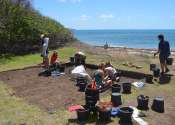Lipid metabolism controls brain development
Neural stem cells are not only responsible for early brain development—they remain active for an entire lifetime. They divide and continually generate new nerve cells and enable the brain to constantly adapt to new demands. ...









